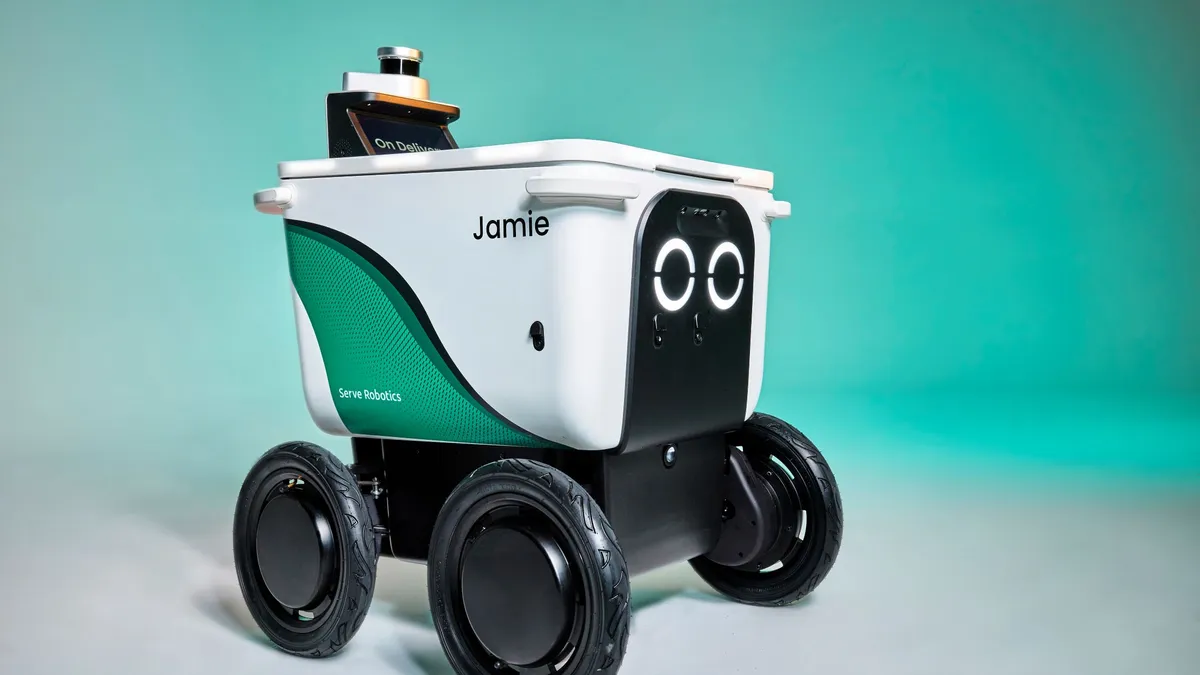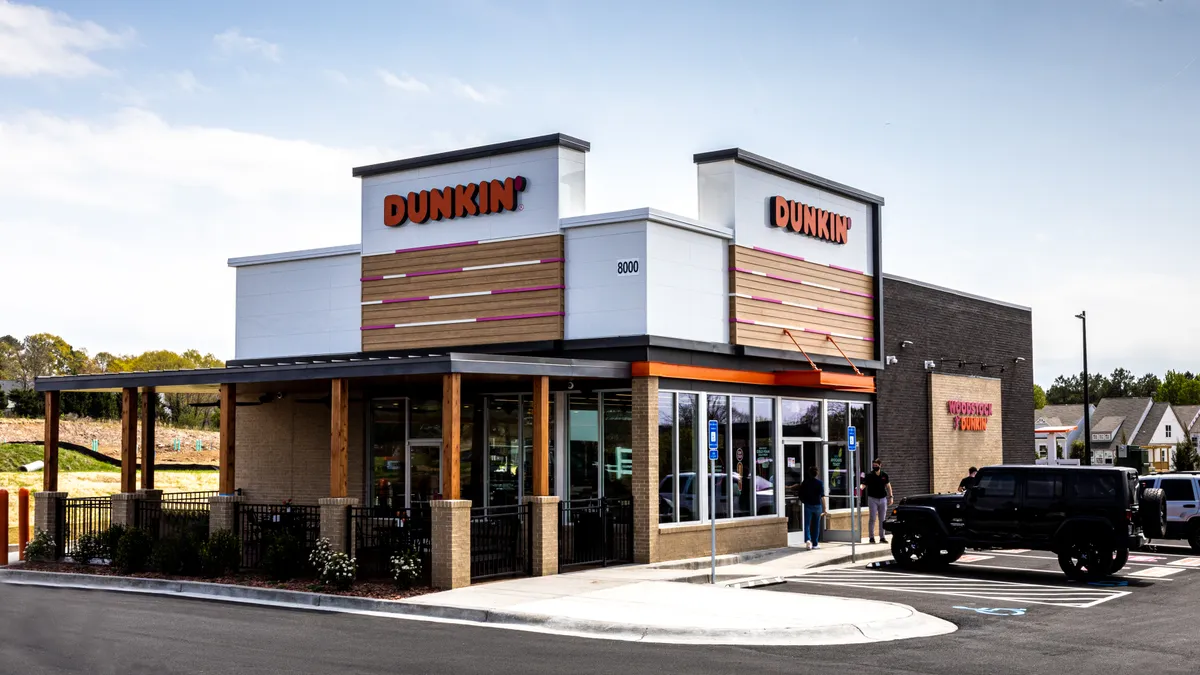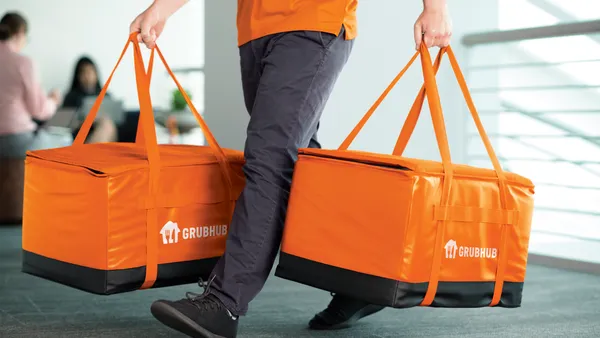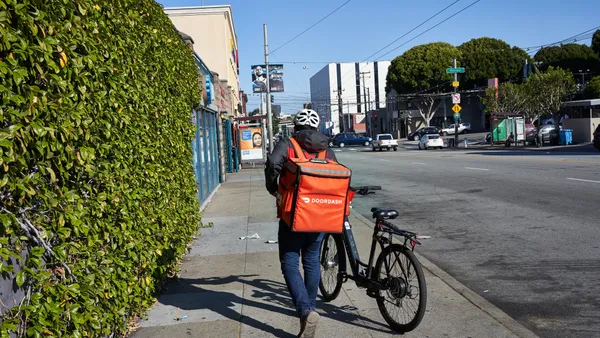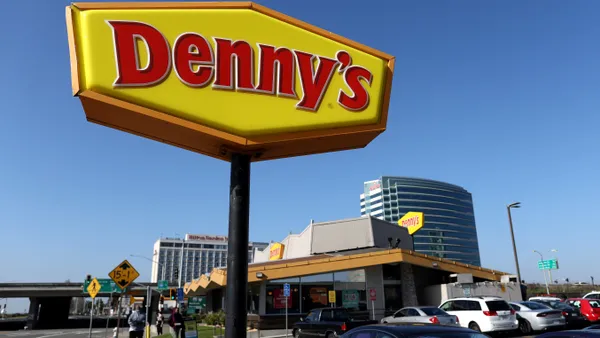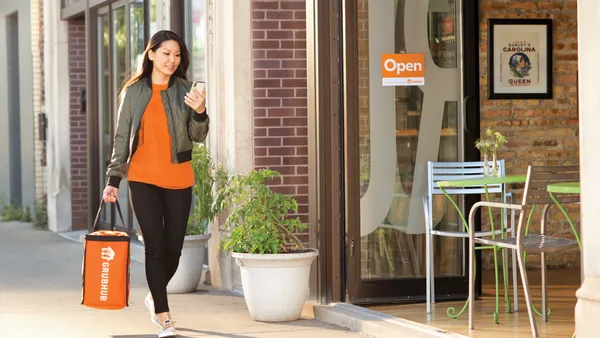Dive Brief:
- Serve Robotics has developed its third generation sidewalk delivery robots, according to a Wednesday press release. The robot will initially be deployed in Los Angeles and another, unspecified, urban market in the coming months.
- The new model robots are twice as fast, travel twice as far and carry more goods than previous versions, the company said.
- Serve said it is on track to manufacture approximately 2,000 of the robots in 2025. Since signing a major expansion deal with Uber Eats last year, the robotics firm went public in a reverse merger and announced a major partnership with Shake Shack through Uber Eats.
Dive Insight:
Serve said the new generation of robots come with significant safety measures: Fail-safe mechanical braking, autonomous collision avoidance and enhanced emergency braking — which stops the robots 40% faster than previous models.
The cargo capacity of the robots has grown by 15%, and they can now hold four 16-inch pizzas at a time. Computing power has also grown, according to the press release. An Nvidia module and lidar technology mean the robots have faster autonomous decision making.
Serve’s robots are built by Magna International, a Canadian auto manufacturing firm, using a global supply chain, and are assembled in North America.
Two thousand robots would enable a massive increase in Serve’s capacity. The company already plans to add at least 250 more robots to Los Angeles by the end of Q1 2025, according to the company’s latest earnings report.
Serve had on average 48 robots completing deliveries each day in the quarter ending June 30, per company earnings data. Those robots were active for an average of 385 hours per day collectively, or about eight hours per robot. According to the press release, the new generation of robots can spend six hours more per day in the field than previous versions.
The execution of Serve’s agreement with Uber Eats and full utilization of the robots completed for that agreement would “generate $60 [million] to $80 million in run-rate revenue annually,” the company’s founder and CEO, Ali Kashani, said in the earnings release. In Q2 2024, Serve’s delivery services generated only about $75,000 in revenue for the firm, with software services and branding fees accounting for the bulk of its revenue.



